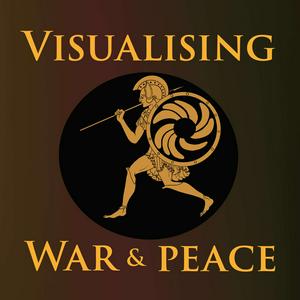The End of Peacekeeping with Marsha Henry
In this episode, Alice interviews Professor Marsha Henry, the Secretary Hillary Rodham Clinton Chair in Women, Peace, Security and Justice at the Mitchell Institute, at Queen’s University Belfast. Over the course of an impressive career, Marsha’s research has focused particularly on the complex relationships between gender, militarisation and peacekeeping. As well as writing a wealth of articles and chapters on these topics, she has spent time over the past 20 years documenting the social experiences of people living and working in peacekeeping missions. Her book on this ethnographic-inspired research, The End of Peacekeeping: Gender, Race, and the Martial Politics of Intervention, was published in March 2024 by University of Pennsylvania Press. The episode starts with Marsha discussing militarism (the ideology that armed conflict is acceptable, normal, even impressive, noble, desirable - and of greater value in society than many civilian activities) and militarisation (the process by which individuals and groups, civilians as well as soldiers, are socialised into war-oriented worldviews). As she underlines, militarisation often intersects with discourses of gender (that reflect and generate inequalities between men and women) and also with discourses of race and colonisation (again leading to inequalities and oppression). While it is less studied, the same trend can be observed in contexts of peacekeeping, where ideas of gender and race can similarly result in unequal and harmful experiences. This has led Marsha to adopting 'intersectional feminist methodologies' in her study of both militarisation and peacekeeping - an approach she explains in detail.The bulk of the episode focuses on Marsha's study of current systems of peacekeeping, in particular the harms perpetrated in official peacekeeping missions via e.g. gender-based violence, colonising impulses, and global north thinking. In her book The End of Peacekeeping, Marsha argues that peacekeeping is not simply a practical but also ‘an epistemic project that actively produces knowledge about peacekeeping, peoples, and practices and as such maintains global systems of power and inequality including heterosexism, colonialism, racism, and militarism’. For that reason, she advocates for its abolition - a proposal we discuss in depth.In exploring alternatives to current peacekeeping practices, Marsha underlines the need for 'knowing differently' by examining peacekeeping more systematically from the perspectives of 'the peacekept'. We discuss the power of different peace imaginaries to shift habits of thinking and doing, and the need to visualise peacekeeping broadly, as encompassing e.g. environmental work. Despite advocating for an end to peacekeeping, Marsha concludes the episode by looking ahead to positive futures - achievable if we are able to dismantle gendered, racist and colonising approaches that for too long have resulted in peacekeeping itself becoming a mechanism of direct, cultural and structural. We hope you enjoy the episode. For a version of our podcast with close captions, please use this link. For more information about individuals and their projects, please visit the University of St Andrews' Visualising War website and the Visualising Peace Project.Music composed by Jonathan YoungSound mixing by Zofia Guertin


